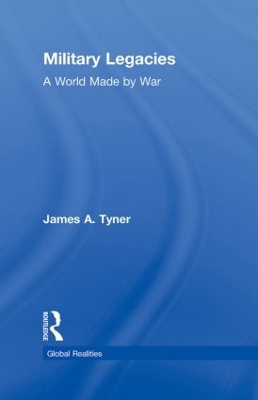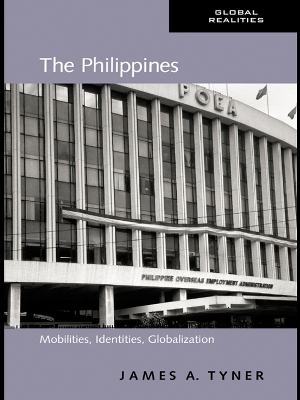Global Realities
2 total works
Landmines, cluster-bombs, chemical pollutants, and other remnants of war continue to cause death to humans and damage to the environment long after the guns have fallen silent. From the jungles of Vietnam to the arctic tundra of Russia, no region has escaped the legacy of warfare.
To understand the...
Read moreLandmines, cluster-bombs, chemical pollutants, and other remnants of war continue to cause death to humans and damage to the environment long after the guns have fallen silent. From the jungles of Vietnam to the arctic tundra of Russia, no region has escaped the legacy of warfare.
To understand the legacy of modern militarism, this book presents an overview of post-conflict societies, with an emphasis on the human toll exacted by modern warfare.
Nearly five million migrant workers from the Philippines are employed in over 190 countries and territories. They work as doctors and domestic helpers, engineers and entertainers, seamstresses and surveyors. It is through their collective labor that the Philippines has assumed a global presence.
For over five centuries the...
Read moreNearly five million migrant workers from the Philippines are employed in over 190 countries and territories. They work as doctors and domestic helpers, engineers and entertainers, seamstresses and surveyors. It is through their collective labor that the Philippines has assumed a global presence.
For over five centuries the Philippines has been integrated into the world economy. Only recently, however, has the Philippines been a pro-active agent in the production of a global economy. Since the 1970s the Philippine state, in connection with myriad private institutions, has recruited, trained, marketed, and deployed a mobile work-force. Annually, approximately one million migrant workers travel to all corners of the world. The Philippines seeks to understand how the Philippines has become the world’s largest exporter of government-sponsored temporary contract labor and, in the process, has dramatically reshaped both the processes of globalization and also our understanding of globalization as concept.

